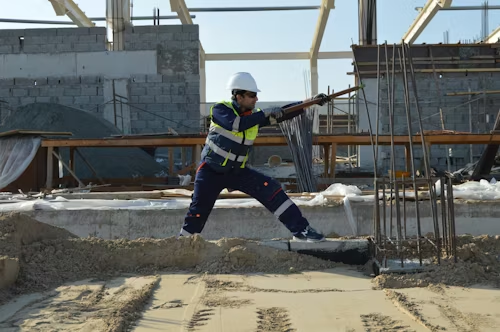
ST. LOUIS — A new workforce survey highlights that worker shortages remain the leading cause of construction project delays in Missouri and across the United States.
The findings come from the 13th annual workforce survey conducted in late July and early August by the Associated General Contractors of America (AGC) and the National Center for Construction Education and Research (NCCER). More than 1,300 construction companies nationwide responded, including 27 in Missouri and 25 in Illinois.

In Missouri, 54% of companies surveyed said the lack of skilled workers is the biggest factor slowing down projects—a figure notably higher than the national average of 45%.
“Construction projects of all types are being delayed because there aren’t enough qualified workers available for firms to hire,” said Ken Simonson, chief economist for AGC, during an online briefing.
Illinois firms reported a similar challenge, with nearly half of respondents citing labor shortages. However, for Illinois companies, governmental hurdles such as limited availability of inspectors tied with labor gaps—each cited by 48%—as the primary reasons for delays.
Beyond workforce issues, the survey found tariffs to be another strain on the industry. Nationally, 41% of firms reported raising bid prices due to actual or proposed tariff hikes. In Missouri, that number jumped to 52%, while 40% of Illinois firms reported the same.
The trade disputes have had a chilling effect on construction activity. Sixteen percent of firms nationwide reported at least one project postponed, canceled, or scaled back because of tariff concerns. Additionally, 39% said they accelerated purchases to avoid higher costs, while just 14% said tariffs pushed them to switch from foreign to domestic suppliers.
“Uncertainty has left owners to hold off on projects,” Simonson explained, pointing to stalled investment amid ongoing U.S. trade disputes with Canada, Mexico, and China.
The survey also noted impacts from heightened immigration enforcement. While 28% of construction firms nationally reported being affected by stricter immigration rules in the past six months, the rates were lower in Missouri (19%) and Illinois (12%).
Nationally, 10% of contractors said workers left or failed to appear due to immigration actions or rumors, while 20% reported subcontractors losing workers. In Missouri, 7% of firms said their own workers left under similar circumstances, and 15% reported subcontractors losing staff. Illinois firms reported 12% losing direct workers but no subcontractor losses.

Industry leaders say the underlying issue is a long-standing gap in workforce development. Simonson pointed to inadequate investment in training and education at the federal level as a key factor.
“One reason for the shortage of qualified workers is the federal government’s failure to pump enough money into education and training programs for prospective workers,” Simonson said.
To address the gap, AGC is lobbying Congress to establish a construction-specific temporary work visa program to bring in skilled labor from abroad. The group is also urging federal policymakers to invest in workforce training programs that can prepare more U.S. workers for careers in construction.
The findings highlight the ongoing challenges facing construction firms in Missouri and beyond:
With billions of dollars in federal infrastructure projects underway, industry groups stress that resolving these workforce and policy hurdles is essential to keep projects on track.
Originally reported by Mark Schlinkmann in Stl Today.